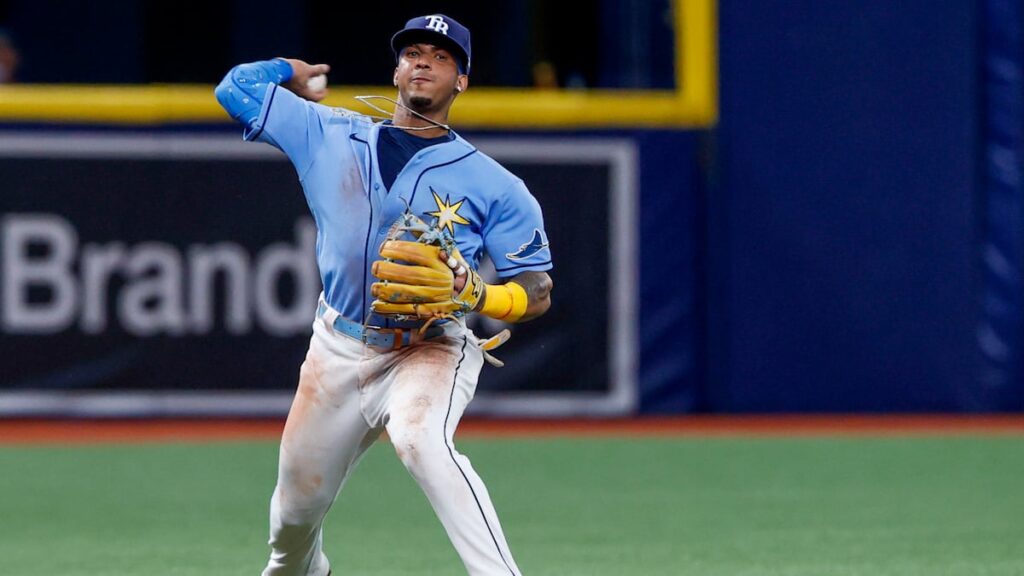Wander Franco, the Tampa Bay Rays’ shortstop, has recently been involved in a series of troubling incidents that have cast a shadow over his professional career. On November 10, 2024, Franco was arrested in San Juan de la Maguana, Dominican Republic, following an armed altercation in the parking lot of an apartment complex. According to Dominican police spokesperson Meregirdo Espinosa, Franco and two others—a man and a woman—were detained, and two firearms were seized during the incident. The altercation reportedly stemmed from a dispute over the woman’s attention, though details remain sparse.
This incident adds to Franco’s ongoing legal troubles. He is currently awaiting trial in the Dominican Republic on charges of sexual abuse involving a minor, with the trial scheduled for December 12, 2024. These allegations have already led to his suspension from Major League Baseball (MLB) and have significantly impacted his standing within the sport.
The recent altercation raises serious concerns about Franco’s decision-making and the company he keeps. Engaging in a public dispute involving firearms not only endangers those directly involved but also tarnishes the reputation of professional athletes who are often seen as role models. Such behavior can have far-reaching consequences, affecting team dynamics, fan support, and sponsorship opportunities.
From a legal standpoint, this incident could complicate Franco’s existing case. Being involved in another legal matter while awaiting trial may influence judicial perceptions and potentially lead to stricter legal repercussions. It also raises questions about his compliance with any bail conditions or legal restrictions imposed upon him.
For the Tampa Bay Rays, Franco’s actions present a significant dilemma. The organization must balance the principles of due process and support for their player with the need to uphold the team’s integrity and public image. Decisions regarding Franco’s future with the team will likely depend on the outcomes of his legal proceedings and any disciplinary actions taken by MLB.
This situation also prompts a broader discussion about the responsibilities of professional athletes. While they are entitled to personal lives, their public visibility necessitates a higher standard of conduct. Teams and leagues may need to invest more in player education and support systems to help athletes navigate personal challenges without resorting to behavior that could jeopardize their careers.
In conclusion, Wander Franco’s involvement in an armed altercation amid pending legal charges is a concerning development that could have lasting implications for his career and personal life. It underscores the importance of personal responsibility and the potential consequences of actions that conflict with the law and societal expectations. As this situation unfolds, it will serve as a critical case study in the intersection of professional sports, legal accountability, and personal conduct.
#WanderFranco #TampaBayRays #MLB #LegalTroubles #AthleteConduct #SportsLaw #ProfessionalResponsibility


